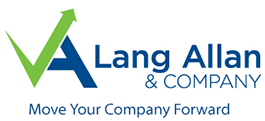The construction industry operates on complex project dynamics, timelines, and budgets, making the choice of billing method critical for both contractors and clients.
Each billing method offers distinct advantages and disadvantages, tailored to the specific needs, risks, and project scope.
Billing Methods
Let’s explore some of the most common billing methods in the construction industry, and highlight their pros and cons to help you make informed decisions. Download this pros and cons list to help you identify the right billing method by project for your construction company.
1. Fixed Price Contracts
Pros:
- Predictability: Fixed price contracts offer a clear, agreed-upon sum for the project, providing financial predictability for clients and ensuring that they know the total cost upfront.
- Simplicity: These contracts simplify budgeting and financial planning for both parties. Clients can allocate funds confidently, knowing the cost won’t escalate beyond the agreed price.
- Incentive for Efficiency: Contractors are motivated to work efficiently and control costs to maximize their profit margins under a fixed price.
Cons:
- Risk for Contractors: Contractors bear the risk of underestimating costs. If the project runs over the estimate, the contractor covers the extra expense.
- Limited Flexibility: Changes in project scope or unexpected challenges can lead to disputes over costs and may necessitate renegotiations, which can delay the project.
- Cost Cutting: There’s a risk that contractors might cut corners to stay within budget, potentially compromising on quality.
2. Cost-Plus Contracts
Pros:
- Flexibility: Cost-plus contracts allow for more flexibility in project scope and changes, making them ideal for projects where requirements might evolve.
- Transparency: These contracts provide a transparent view of actual project costs, plus a predetermined fee or percentage that goes to the contractor, fostering trust between parties.
- Quality Focus: Since contractors are reimbursed for actual costs, there’s less incentive to cut corners, potentially leading to higher quality outcomes.
Cons:
- Less Budget Control: Clients may find it challenging to predict final costs, as the total price can fluctuate based on actual project expenses.
- Potential for Higher Costs: Without a cap on spending, projects can become more expensive than anticipated, especially if not closely monitored.
- Requires Diligent Oversight: Clients must closely monitor expenditures to ensure costs are legitimate and necessary, requiring additional time and resources.
3. Time and Materials (T&M) Contracts
Pros:
- Adaptability: T&M contracts are highly adaptable to changing project scopes, making them suitable for projects where it’s challenging to estimate the full scope upfront.
- Straightforward Billing: Contractors bill for the actual time spent and materials used, simplifying the billing process and ensuring clients pay only for what is needed.
- Transparency and Trust: This method fosters transparency and can build trust, as clients can directly see where their money is going.
Cons:
- Uncertain Costs: Similar to cost-plus contracts, the lack of a fixed price can make it difficult for clients to budget accurately.
- Potential for Inefficiency: Without the incentive for efficiency present in fixed-price contracts, projects might take longer, increasing labor costs.
- Requires Close Management: Clients need to closely monitor the progress and costs to avoid budget overruns and ensure the project stays on track.
Choosing the right billing method in the construction industry depends on various factors, including project scope, risk tolerance, budget flexibility, and the need for quality assurance. Fixed price contracts offer predictability and simplicity, cost-plus contracts provide flexibility and quality focus, while T&M contracts offer adaptability and transparency.
Understanding the pros and cons of each method enables you to select the most suitable approach, ensuring project success and financial viability.
Need accounting and tax help in your construction business? Give us a call.
